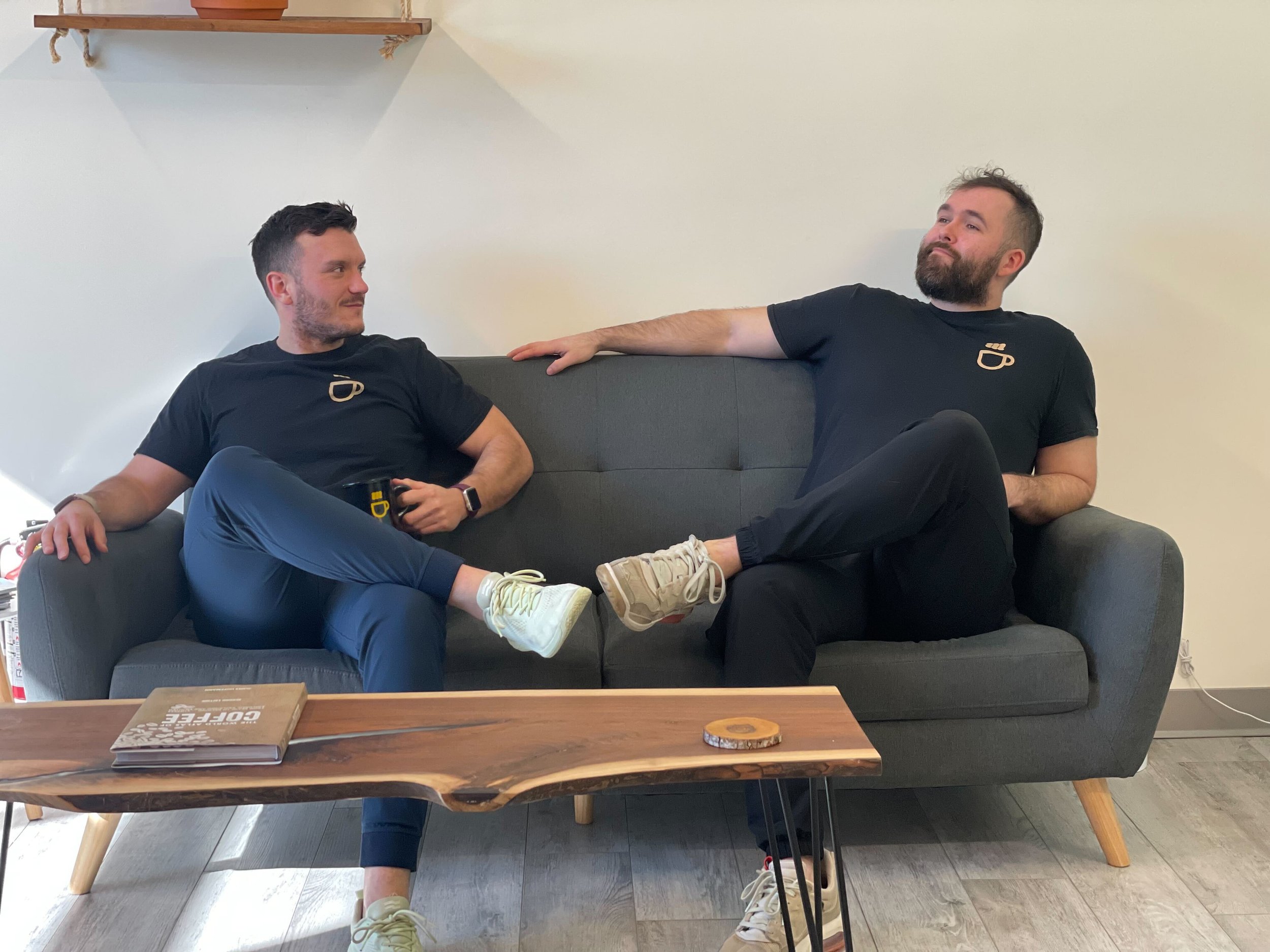Our Origin Story
The Cliff Notes
We recorded an episode telling you all about how we started and what we’re about, which you can watch above! However, if you’d prefer to get the cliff notes, here they are.
Dalton and Will met in physio school, where they instantly connected over their drive to learn what was really going on in the rehab world AND their love for coffee. They were listening to podcasts, reading blog, diving into the research, and noticing that what they were learning in school was often outdated and different from what they were seeing outside in the real world.
Since they drank coffee and ranted about all things rehab and LOVED listening to podcasts, they decided…why not make their own? Taking inspiration from the PTPINTCAST, they started the PTCOFFEECAST with the goal to bridge the gap between what we were learning in school and what was happening in the real world of rehab.
This started largely through interviews, as they interviewed all kinds of voices in the profession such as Greg Lehman, Adam Meakins, Nick Hannah, Zak Gabor, Wesley Wang, Todd Hargrove, and the list goes on!
After school when Dalton and Will were new grads, they continued the podcast. At this point, they were unsure about what exactly it was going to become BUT knew it was something they should continue.
In 2020, with the help of co-founder and physiotherapist Don Lesar, they opened The Movement Physio & Performance in Dundas. As a result, Dalton and Will have had to learn more about what it takes to run a successful practice including things like the client lifecycle, client experience, sales, and marketing….things that weren’t touched on in school.
They needed to mentor clinicians that they were bringing onto the team, and noticed some recurring trends on what they needed to become successful. They noticed it had less to do with clinical knowledge and more to do with other areas that influence outcomes.
This is what led them to changing the style of their podcast to focusing more on the topics they felt were benefiting their mentees AND to developing The Movement Mentorship.
Now, they focus on helping clinicians overcome imposter syndrome and set the foundation for becoming a great clinician without adding more clinical ‘tools to their toolbox’.
Listen Now!

2017

2023